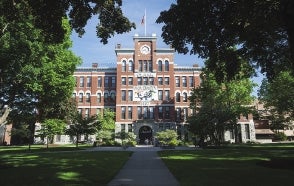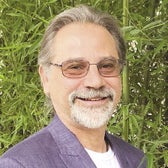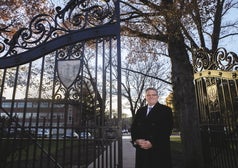City collaboration leads to Clark U. global health degree
A collaboration involving the city of Worcester and Clark University led the latter to develop a master's degree that will get students to understand how political, economic and social forces impact public health.
The idea is that the degree, Global and Community Health Masters in Health Sciences, will give students the analytical skills they need to understand the systematic factors that shape public health, and the communications and technical skills they need to bring about change, if needed.
The degree is a way to scale up public health research Clark students have done for the city for years. Through the Academic Health Collaborative, the city can leverage its vast academic resources to improve public health, said Marianne Sarkis, assistant professor at Clark, coordinator for the Academic Health Collaborative and Clark's global and community health coordinator.
The degree would be a way for Clark to scale what it's doing at a local level, internationally, Sarkis said.
Public private collaboration
The master's degree was developed as a result of the Academic Health Collaborative, which is a joint venture of the city, Clark, Worcester State University, UMass Medical School and UMass Memorial Health Care.
Worcester, like many other cities and towns, went through an economic downturn in 2009, during which the Division of Public Health laid off 75 percent of its employees, said Karyn Clark, Worcester's public health director. Community stakeholders expressed concerns about how that would affect the city. A task force was assembled, and an academic health department was created, Clark said.
“The purpose of the [academic health department] is to tap into the vast and varied resources of our academic partners, to not only provide a public health practicum for students who are interested in this field, but also act as an extension of our small staff to implement strategies and policies related to the Greater Worcester Community Health Improvement Plan,” she said.
The way it works is the city will identify a public health issue and then pose it to an academic institution, where it is studied extensively by students and then presented back to DPH. Clark students studied prostitution and the opiate crisis for DPH, Sarkis said.
Master's degree graduates would ideally gaining an understanding of community health issues and domestic policy environments, research methodology competencies, the ability to integrate knowledge and stakeholder perspectives, and leadership skills, she said, though the program's goals are still subject to change.
“Why would we treat someone and then send them back to the environment that created the health issue in the first place? That's what we're trying to fix,” Sarkis said. “'Health is not just the absence of disease,' as the World Health Organization stated awhile ago.”
The idea is graduates will be able to work for organizations like the World Health Organization or the Centers for Disease Control and Prevention.
The public health department, Sarkis said, wants to hire “people who can do gap analysis, community evaluation and community engagement – those skills that are not technically part of public health but are needed as much as the specific skills in public health.”
The degree still needs approval from Clark's Graduate Board, the Planning and Budget Review Committee and from the board of trustees.If all goes to plan, the first cohort of graduate students could be on campus as early as fall 2017, Sarkis said.
Clark also developed a separate health certificate program, which already has the go-ahead and will begin this September.
Clark is in the midst of a health hub initiative to strengthen the university's health focus by coordinating and supporting consolidation of all related health projects under one metaphorical roof, Sarkis said.
The city wasn't directly involved with the development of the new program, but Clark said she thinks the university saw the value in having a program for students who exhibited a strong interest in the work they were doing with the public health department.
“The passion and interest we've seen from both faculty and students at Clark in public health begged the question why there wasn't a more specific academic opportunity for that work,” Clark said. “We are excited to see a local program developing a workforce in the growing field, particularly with Clark's long history of promoting social justice and community development.”















0 Comments